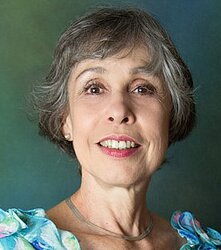Prof. Dr. Alicia Ponte-Sucre, Venezuela

1. Please describe your (scientific) work/research in a short way.
Our leitmotif has been to understand fundamental processes involved in essential functions related to homeostasis and preservation of life, with a focus on the study of the mechanisms responsible for drug- susceptibility, or resistance and parasites-host interaction, in the metabolically flexible parasites Leishmania and Trypanosoma, by integrating the use of biochemical, biophysical, cell biology and pharmacological tools. Additionally, our studies and work have contributed to promote the design of alternative therapies against the tropical diseases produced by these parasites. Finally, our work and dedication has contributed to the education of many generations of medical doctors and postgraduate students in Venezuela and abroad. I have originated 88 publications and book chapters, 110 participations in seminars and symposiums, 176 free communications and edited 4 books for specialist in the area.
2. Which aspect of a sustainable life, work and research is especially relevant for you and why?
Three of the eight MDGs are directly related to the area of health. MDG-4, MDG-5 and MDG-6, and MDG-8 to research and development. After these MDG, the Sustainable Development Goals (SDG) have been proposed. These SDG require even more compromise from the communities involved, including the scientific community. Indeed, the scientific communities play a primordial role to crystalize the goals of control and prevention of the diseases above mentioned as this objective is closely related to experimental research, due to the urgency of establishing adequate diagnoses and offering optimal chemotherapies, achieving appropriate control and/or elimination of vectors and, optimizing guidelines to be applied in epidemiological, sociocultural and health contexts, common in areas of the world where these diseases are endemic. As the organisms that cause these conditions are extremely flexible and have sophisticated survival mechanisms, the challenge we face implies that our work must produce sustainable, dynamic and useful knowledge for solving the ailments caused by these parasites. In this arduous mission researchers and academics carry out tasks of great commitment, linked to the possibility of improving the living conditions of the society, including health. It is in this subject where my professional life is inserted.
3. What would be your wish for the future (and why) with this regard?
Knowledge production is a global matter since what any of us produce is public and can be used by anybody all over the world through the WEB. What I would wish thus is that, as the design of diagnostic, epidemiological, preventive and therapeutic tools, essential in the optimization of the health systems responsible for the control of neglected diseases require research in health sciences, the outcome of this production of knowledge should be made really available to those that need to solve health problems that symbolize the focal needs associated with neglected diseases. In this regard, I am convinced that children should be at our focus and on the DSG focus. As scientists we are responsible for creating knowledge and convincing the authorities responsible for public policies to use this knowledge as tools to prevent and control these diseases. We are also responsible for promoting population education processes that at the end mean liberty and justice for these our people. And we must consolidate a better world for children who at the end will grow and will perform this universal profession, being humans.
4. How is the Corona crisis affecting you in your every-day life and work?
I want to summarize this question with the following: it looks like that this crisis has opened a Pandora box; a different one since in the original only hope came out at the end. In this (my) XXI version of the Pandora box the worst of the worst has cropped out, but also, the best of the best is also cropping. The situation in our country Venezuela is especially dramatic, since our health and economic systems were already in bankrupt before Covid-19 came in. We have very few opportunities of adequate diagnostic hospitalization and therapies, and even less opportunities to calm the hunger of our people. Only solidarity might save us from even more pain than the one we are suffering now. It is a world responsibility to help developing countries to build up a critic mass of human resources that want to stay in their home countries to build up and consolidate development and sustainability in places where they belong to.



